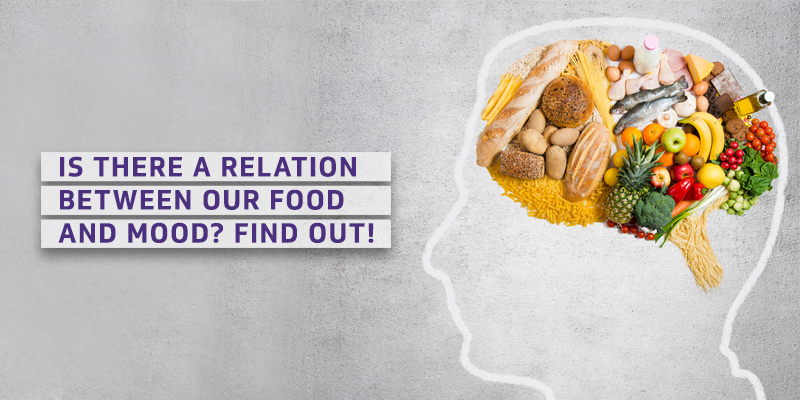
These days when materialism is encroaching upon our society, psychological problems have become a major cause of health concern. According to WHO (World Health Organisation), with around 56 million people suffering from depression and 38 million from anxiety disorders, India is facing a serious mental health crisis. Mental disease is believed to be the main reason why one student commits suicide every hour in India.
Depression is a state of mind that alters a person’s way of thinking, feelings and behaviour due to various chemical changes happening inside the brain. This causes distress and difficulty in the daily functioning of an individual. Pharmacotherapy and psychotherapy are the two major forms of treatments provided; however, these methods help in averting only 50% of the mental illness cases. Therefore, additional therapies and strategies are required to prevent and effectively treat mental issues.
Nutritional Psychiatry
Although the factors affecting mental health are complex, recent studies suggest that diet also plays an important role in psychological issues. Diet regulation is as important to psychiatry as it is to cardiology, endocrinology or gastroenterology. Due to this reason, Nutritional psychiatry is emerging as a new field.
A review performed by academic members of the International Society for Nutritional Psychiatry Research states that nutritional medicine should be a mainstream element of psychiatric practice. A diet consisting of a higher percentage of vegetables, fruits, whole grains, lean meats, seafood, nuts, and legumes, with avoidance of processed foods, supplies your body with more nutrients that can provide enhanced resistance against the progress of mental health issues.
Diet, Depression and Anxiety
Recent studies have examined and established a link between overall diet quality, depression and anxiety. Following points explain the relation between diet quality and our mental health:
- The brain demands a constant supply of energy, which is approximately 20% of our daily calorie requirement. Therefore, what we eat directly affects the function of our brains and ultimately, our moods.
- The human brain works at a very high metabolic rate and is dependent on amino acids, fats, vitamins, minerals, and trace elements.
- Depression can increase or decrease the appetite and negative mood can stimulate a preference for high-sugar and high-fats foods.
- Fatigue and disinterest due to depression can hamper the motivation to engage in healthy eating habits.
- Dietary intake has a direct impact on biological systems, oxidative processes, immune system functioning, and brain proteins.
- Processed foods, especially those high in sugar, refined carbs, fat, and salt can contribute towards increasing the risk of depression
- When a person eats processed food, the body’s energy level increases rapidly and then crashes suddenly. Refined and saturated fats can elicit inflammation and also impair brain functioning and worsen the symptoms of depression.
- Recommended nutrients for brain- essential nutrients such as vitamin B, zinc, folate, and magnesium, caffeine, probiotics, protein and antioxidants help in boosting the brain.
- High-fat and high-sugar foods can affect protein metabolism, which is important for brain development
Omega-3 fatty acids provide a range of neurochemical activities, anti-inflammatory effects, and the enhancement of cell-membrane fluidity. - Probiotics help in reducing anxiety and perception of stress while improving mental balance
Conclusion:
The relationship between depression and diet is direct; those with depression are more likely to consume poorer quality diets
Nutritional psychiatry increasingly links the importance of diet in mental illnesses; hence, it emphasizes the need for more healthful dietary patterns and the significance of the role of nutrition in our lives.
“The message is clear: Only a well-nourished body and brain can withstand psychological health challenges—Nutrition matters!”
Author,
Ms Vidya Narasimhan– Senior Nutritionist, RxDx
For further details, please contact: 080-49261111, 6745-8111
Download RxDx Smart Healthcare App Now!!!



